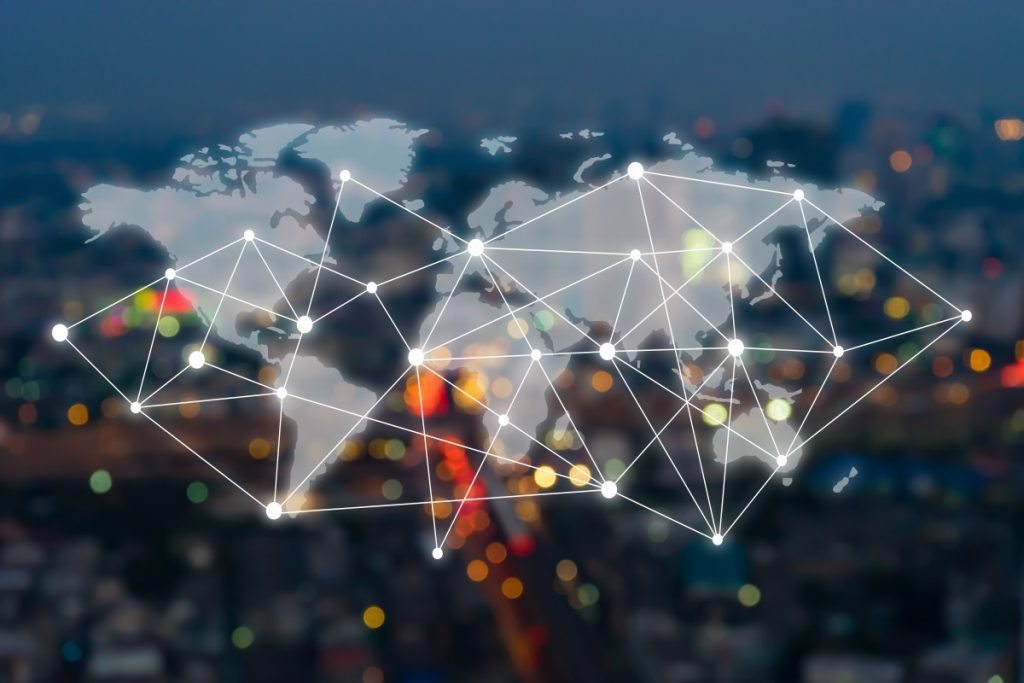by Eve Gleeson
18 July 2019

Introduction
The Internet’s essence as “open, global, [and] borderless” has complicated attempts toward international cooperation on Internet governance. Many authoritarian states with comprehensive cybersecurity policies and strategies regard the Internet as a tool to monitor and quell internal dissent that may threaten regime stability, while liberal democracies, especially those belonging to Western multilateral organisations such as the EU and NATO, have tended to conceive of it rather as a borderless space free from excessive regulation.
Authoritarian states, such as Russia, China and the states with whom they maintain rather informal ties, such as Iran and Southeastern Asian states like Malaysia and Indonesia, clash with the proponents of liberal democracy whose values traditionally prevail in international institutions. As leaders of the Internet Sovereignty (IS) movement, China and Russia hope to use their growing diplomatic influence to manipulate global Internet governance standards in favour of state sovereignty. This article will discuss how the values of IS may impact the global power balance and a transnational Internet governance agreement, stressing the position of Russia and China in global diplomatic bodies.
Transnational cybersecurity governance
Bodies like the UN and its agency the International Telecommunications Union have created and reviewed numerous initiatives concerning transnational Internet protocols. However, these initiatives have proved to be vague and incomplete strategies victim to gridlock and technical limitations. IS leaders Russia and China and their increasingly potent force of global Internet allies remain challenged by Western actors, such as the United States, who benefit from institutionalised power and market-dominating private technology companies.
Bilateral and multilateral cooperation in this area has been prolific as powerful states seek to gain Internet allies who may represent their interests at the global negotiating table. This includes the Shanghai Cooperation Organisation, an alliance originally designed to combat terrorism but has since ushered its eight members, hailing from South and Central Asia, toward strategies and norms that speak to the threat that information poses to national security and stability. Other occurrences of inter-group cooperation are reflected through signatures on UN resolutions by band-wagoning states, including by developing states in Latin America, Africa and Asia, as well as collaborations on global Internet conferences.
China and Russia: Messiahs of Internet Sovereignty
These states serve as beacons of hope for national jurisdiction over the digital space, serving up bold cybersecurity policies and strategies. With landmark policies like the Golden Shield and the Great Firewall, and technology giants like Huawei and Alibaba, China has become a leader of technological prosperity. Russia has created similarly robust Internet policies in addition to several market-dominating technology companies including Yandex and Kaspersky Lab. This has given the Russian state the capacity to expel Western technology companies, bolster the national economy, and monopolise national identity creation through social media censorship.
Chinese policies of filtering and censoring content reflect the ideals of state control over national identity, information access, dissent and mobilisation, and emerging technologies. China’s investment in the telecommunications sectors of East African states (linked with their adoption of Chinese-inspired censorious cybersecurity policies) and policy leadership in the SCO and BRICS partnerships reflect the state’s efforts to “promote [their views] as the basic principles for structuring international relations and regimes on a global level.”
In 2015, China and Russia formalised their bilateral cybersecurity relations with the Agreement on International Information Security Cooperation. Russia has also forged formal cybersecurity ties with less advanced emerging economies, such as Southeast Asia through an emerging agreement with ASEAN and existing cybersecurity collaboration with the Philippines. In addition, Russia has used the Collective Security Treaty Organisation, an alliance comprised of former Soviet satellite states, as a tool to consolidate a collective cybersecurity strategy. By combatting Western technological dominance, both materially and normatively, Russia and China can expand their own industries, retain control over their population, and spread non-Western ideals among states who may, in turn, provide support to them in international fora.
Implications and Conclusion
A global Internet governance regime ruled by IS ideals, whether it be a codified UN agreement or more informal norms and practices, would not mirror the hierarchical structure of traditional governance bodies: instead, it would create no order of power at all, with each individual state executing autonomy over Internet activity within its borders. This sort of agreement may also impact how cybersecurity development programs are funded, with resistance from China and Russia for developing states to receive development aid from the West.
Such a collaborative agreement may also struggle to set human rights and transparency norms. By granting states autonomy in this arena, it would relinquish authority over domestic consequences of Internet policies. This would leave states with a pre-modern degree of sovereignty, allowing them to steer the Internet toward or away from state-based information and knowledge control, political mobilisation, and national identity creation. Russia and China’s efforts toward Internet sovereignty norms will persist as they advance their interests of building a strong anti-West alliance. As they grow as economic powers, their efforts to integrate Westphalian values of sovereignty into international institutions will grow in tandem, threatening liberal ideals of globalisation.
So far, the transnational agreements that have been proposed, amended, and rejected have encountered fragmentation, ambiguity, and logistically-weak imperatives. The economic and infrastructural disparities between states, the struggle for policy to outpace technological advances, the role of private stakeholders that uphold the industry, and the logistical impracticalities of enforcing Internet policies have all stifled ventures toward global cooperation. In addition to resolving these issues, states must realistically engage in compromise to construct a functional regime.
Eve Gleeson is a master’s student in International Relations at the Department of War Studies, King’s College London, as well as the Communications Manager of Strife and a security analyst at AMC Solutions. Her research focuses on technology governance, cybersecurity of critical systems, and socio-technical theory. Eve holds a BA in International Studies with a focus on conflict and security from Emory University in Atlanta, Georgia, USA. You can find her on LinkedIn and on Twitter @evegleeson_.